
Find Help
More Items From Ergsy search
-

How is the revenue from the sugar tax used?
Relevance: 100%
-
How much revenue has the sugar tax generated?
Relevance: 94%
-

What is the sugar tax in the UK?
Relevance: 74%
-

Who pays the sugar tax?
Relevance: 71%
-

What is the purpose of the sugar tax?
Relevance: 71%
-

Has the sugar tax been effective?
Relevance: 67%
-
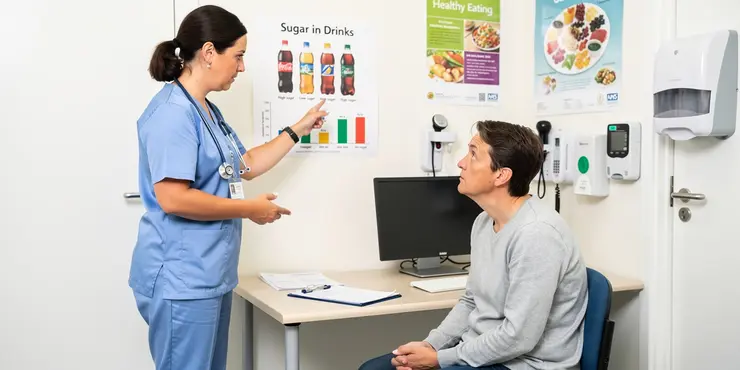
Has the sugar tax affected the sugar content in drinks?
Relevance: 66%
-

What are the long-term goals of the sugar tax?
Relevance: 66%
-

How does the sugar tax affect consumers?
Relevance: 65%
-
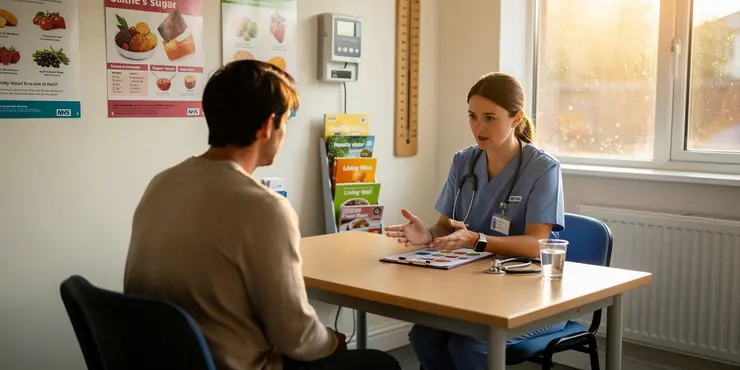
How does the sugar tax align with public health strategies?
Relevance: 63%
-
Is the sugar tax applied to diet or zero sugar drinks?
Relevance: 60%
-
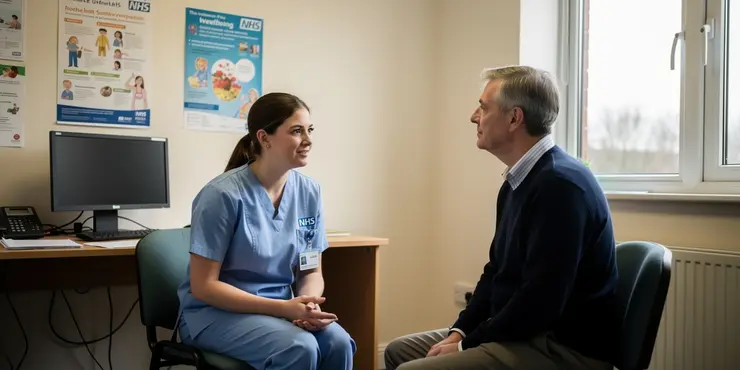
Which drinks are exempt from the sugar tax?
Relevance: 55%
-

Has the sugar tax led to innovation in the drinks industry?
Relevance: 55%
-
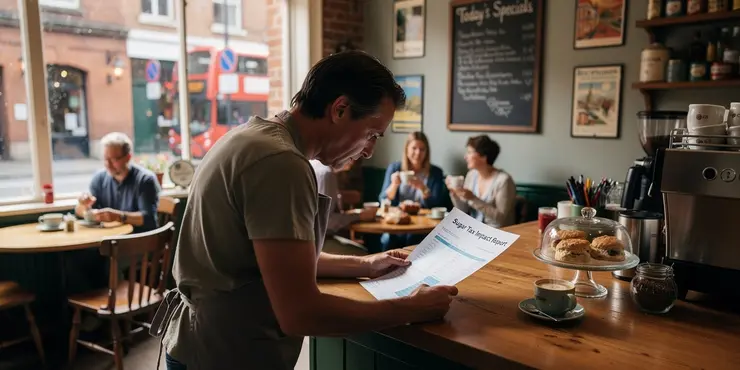
Does the sugar tax apply to small businesses?
Relevance: 55%
-

What impact has the sugar tax had on obesity rates?
Relevance: 54%
-

How is the sugar tax applied?
Relevance: 51%
-
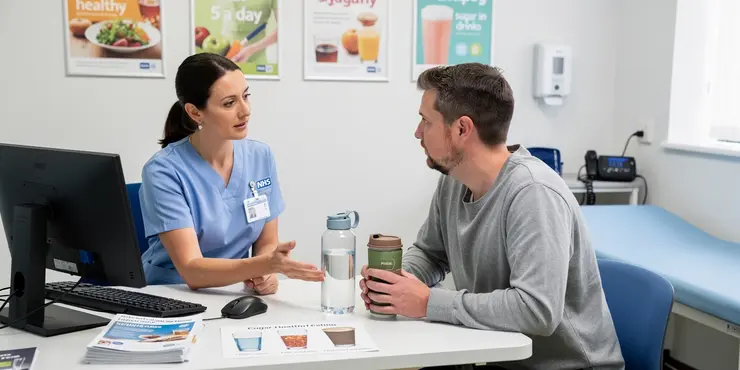
When was the sugar tax introduced in the UK?
Relevance: 49%
-
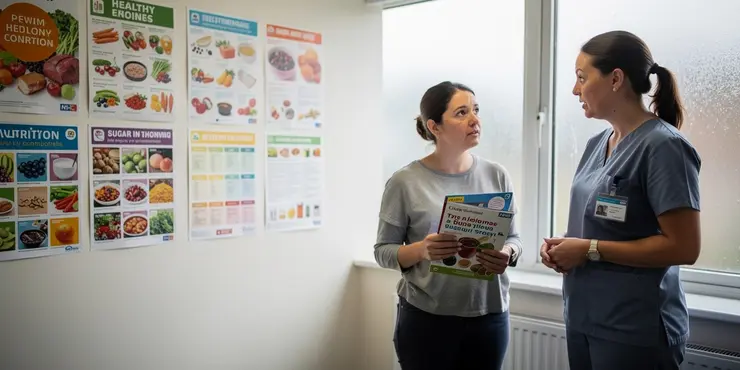
What are the rates for the sugar tax?
Relevance: 45%
-

Would a wealth tax replace other taxes in the UK?
Relevance: 44%
-
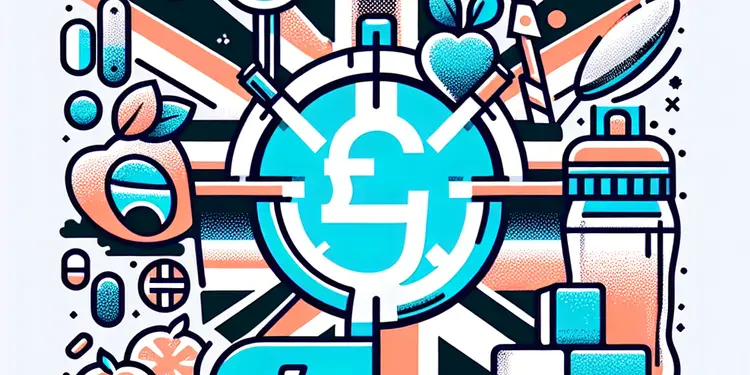
Are sugar substitutes healthier than regular sugar?
Relevance: 39%
-

What arguments are made for a wealth tax in the UK?
Relevance: 38%
-

How do economists view the impact of wealth taxes?
Relevance: 38%
-

What are the administrative costs of a wealth tax?
Relevance: 38%
-

What are common arguments in favor of a wealth tax?
Relevance: 38%
-
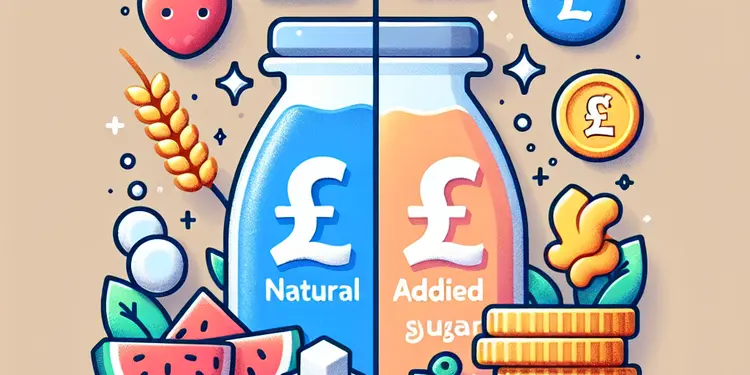
What is the difference between natural sugar and added sugar?
Relevance: 38%
-

Have any other countries implemented a sugar tax similar to the UK?
Relevance: 37%
-

What is the 'sugar crash'?
Relevance: 37%
-

What is the objective of a wealth tax?
Relevance: 36%
-

What is the wealth tax in the UK?
Relevance: 36%
-

Could a wealth tax affect economic growth in the UK?
Relevance: 36%
-

What are the challenges of implementing a wealth tax?
Relevance: 36%
-

What is a Wealth Tax?
Relevance: 35%
-
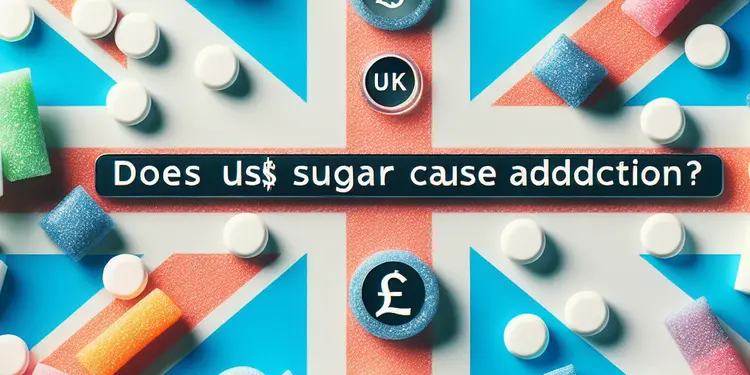
Does sugar cause addiction?
Relevance: 35%
-

Could a wealth tax encourage tax avoidance?
Relevance: 35%
-
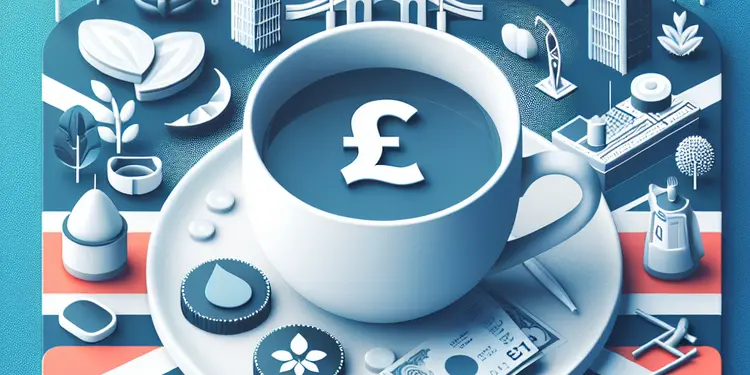
Can I have sugar if I am diabetic?
Relevance: 35%
-
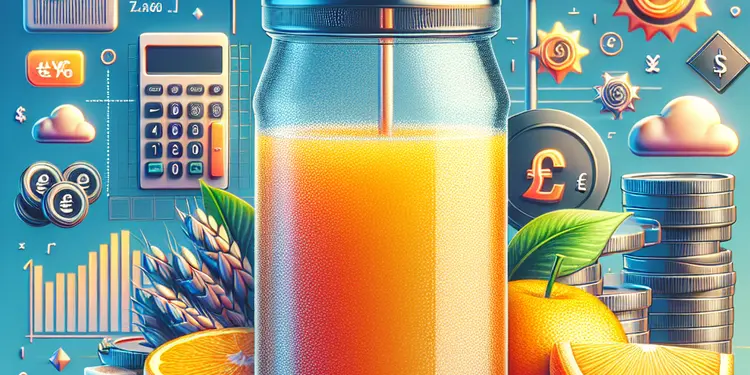
Is orange juice high in sugar?
Relevance: 35%
-

What is the Wealth Tax in the UK?
Relevance: 35%
-

Is tax evasion an offence of dishonesty?
Relevance: 35%
-

What is input tax and output tax?
Relevance: 35%
-

Is honey a better alternative to sugar?
Relevance: 34%
Introduction
The sugar tax, officially known as the Soft Drinks Industry Levy (SDIL), was introduced in the UK in April 2018. It was implemented to tackle the growing obesity crisis and encourage manufacturers to reduce sugar content in drinks. The levy applies to soft drink producers and importers, and its impact on public health and revenue generation has been an area of interest since its inception.
Revenue Generated by the Sugar Tax
Since its introduction, the sugar tax has been successful in generating significant revenue for the UK government. In its first year, the tax generated approximately £154 million, surpassing early expectations. This figure indicates the effectiveness and reach of the levy across the beverage industry. By the end of 2019, total revenue from the sugar tax had reached around £340 million.
In the fiscal year ending in March 2020, the government reported that the revenue from the sugar tax was nearly £336 million. It is noteworthy that the initial forecast was higher, but the tax still exceeded £300 million annually, confirming its ongoing contribution to public finances. Even with fluctuations in consumption and adjustments by manufacturers, the levy continues to bring a substantial amount of money into the Treasury.
Impact on the Beverage Industry
The introduction of the sugar tax prompted many beverage companies to reformulate their products to avoid the levy, which applies to drinks containing more than 5 grams of sugar per 100 milliliters. This reformulation trend has contributed to reduced sugar content in many popular beverages, demonstrating the tax's influence beyond direct revenue generation.
Manufacturers that have chosen not to reformulate continue to contribute to the levy, highlighting a shift in industry practices. The government has channelled the revenue towards funding health initiatives, thus linking fiscal policy directly with public health improvements.
Allocation of Sugar Tax Revenue
The revenue generated by the sugar tax supports several initiatives, primarily aimed at improving children's health and reducing obesity. A significant portion is allocated to funding school sports and breakfast clubs, ensuring that the revenue assists in fostering a healthier younger generation.
Furthermore, the revenue supports programs such as the Healthy Pupils Capital Fund, which funds improvements in school facilities related to physical education and healthy eating. By redirecting funds from the levy to such causes, the UK government reinforces the sugar tax's purpose: to improve public health and reduce the incidence of sugar-related health issues.
Conclusion
The sugar tax has proven to be a pivotal public health strategy, with its success measured not only in revenue terms but also by its impact on industry practices and health outcomes. As of 2023, it continues to raise significant funds while promoting healthier choices among consumers and producers alike. This dual benefit underscores the levy’s importance in the UK’s approach to tackling diet-related health challenges.
Introduction
The sugar tax is a rule that started in the UK in April 2018. It is called the Soft Drinks Industry Levy (SDIL). The main goal is to help people be healthier by having less sugar in drinks. The tax is for companies that make or bring soft drinks into the UK. People are interested in how it helps with health and how much money it makes since it started.
Money from the Sugar Tax
The sugar tax has made a lot of money for the UK government. In the first year, it made about £154 million. This was more than people thought it would. By the end of 2019, the tax made about £340 million in total.
From April 2019 to March 2020, the tax made nearly £336 million. The government thought it would make more at first, but the tax still earns over £300 million each year. Even when people drink less or companies change their drinks, the tax still brings in a lot of money.
Changes in the Drink Industry
Because of the sugar tax, many drink companies made their drinks with less sugar so they wouldn’t have to pay the tax. The tax is for drinks with more than 5 grams of sugar in every 100 milliliters. This means there is less sugar in a lot of drinks now.
Some companies chose not to change their drinks, so they pay the tax. The money from the tax is used to help people be healthier. This shows that the tax does more than just make money—it helps keep people healthy.
Using the Sugar Tax Money
The money from the sugar tax is used to help children be healthier and to fight obesity, which means having too much body fat. A lot of the money goes to school sports and breakfast clubs. This helps young people be healthy and active.
The money also helps with the Healthy Pupils Capital Fund. This fund helps schools have better places for exercise and healthy eating. By using the tax money this way, the UK government wants to make people healthier and help stop problems from too much sugar.
Conclusion
The sugar tax is a big part of keeping people healthy. It is successful not just because of the money it makes, but also because it helps drinks have less sugar and people choose healthier options. In 2023, it is still making a lot of money and encouraging better choices. This shows the tax is important for helping with health problems related to diet in the UK.
Frequently Asked Questions
What is the sugar tax?
The sugar tax is a levy on sugary drinks aimed at reducing sugar consumption and, in turn, improving public health.
When was the sugar tax implemented?
The sugar tax was implemented on April 6, 2018, in the UK.
How much revenue has the sugar tax generated annually?
The sugar tax has generated approximately £240 million per year in the UK, although this figure can vary.
What is the total revenue generated by the sugar tax since its implementation?
As of 2022, the sugar tax is estimated to have generated over £1 billion in revenue.
How is the revenue from the sugar tax used?
Revenue from the sugar tax is used to fund health programs and initiatives, such as sports activities in schools.
Has the sugar tax reduced sugar consumption?
Yes, there is evidence to suggest that the sugar tax has led to a reduction in sugar consumption from sugary drinks.
Which drinks are affected by the sugar tax?
The tax applies to sugar-sweetened beverages with more than 5 grams of sugar per 100 milliliters.
Are fruit juices subject to the sugar tax?
No, pure fruit juices are not subject to the sugar tax, even if they contain high levels of natural sugar.
Have any other countries implemented a sugar tax?
Yes, several other countries have implemented similar taxes, including Mexico, France, and South Africa.
What is the purpose of the sugar tax?
The primary goal is to reduce sugar consumption to address health issues such as obesity and type 2 diabetes.
Has the sugar tax affected the beverage industry?
Yes, many beverage companies have reformulated their drinks to contain less sugar in response to the tax.
How does the sugar tax vary for different drinks?
Drinks with over 8 grams of sugar per 100 ml face a higher tax than those with 5-8 grams of sugar.
Is there evidence that the sugar tax influences consumer behavior?
Yes, there has been a noted shift towards purchasing lower-sugar and sugar-free drinks since the tax's introduction.
Have soft drink prices increased because of the sugar tax?
Some soft drink prices have increased, while others have been reformulated to avoid the tax, keeping prices stable.
Does the sugar tax apply to all sweetened beverages?
No, it mainly targets drinks with added sugar and excludes milk-based and pure fruit juice beverages.
What percentage of drinks have changed their sugar content due to the tax?
Over 50% of drinks initially subject to the tax have reduced their sugar content to avoid the levy.
What is the public opinion on the sugar tax?
Public opinion is mixed, with some supporting it for health benefits, while others oppose it due to increased costs.
Has the sugar tax influenced the sales of sugary drinks?
Yes, there has been a noticeable decrease in sales of high-sugar drinks and an increase in sales of reduced-sugar options.
Do experts believe the sugar tax is effective?
Many health experts believe it is a step in the right direction, though its long-term effectiveness is still under review.
What are some criticisms of the sugar tax?
Critics argue it disproportionally affects low-income individuals and question its effectiveness in combatting obesity long-term.
What is the sugar tax?
The sugar tax is a rule that makes drinks with lots of sugar cost more money. When you buy sweet drinks, you might pay extra. This helps people choose healthier drinks. You can use pictures or videos to learn more about the sugar tax. If you need help reading, ask an adult or use reading apps to help you understand.
The sugar tax is a special charge on drinks with a lot of sugar. It tries to get people to drink less sugar, so they can be healthier.
When did the sugar tax start?
The UK started a sugar tax on April 6, 2018.
How much money does the sugar tax make each year?
The sugar tax is extra money that people pay when they buy drinks with a lot of sugar. This money goes to the government.
To understand this better, you can use tools like picture charts or videos. These can help show you how much money is made from the sugar tax each year.
The sugar tax brings in about £240 million each year in the UK. This amount can change.
How much money has the sugar tax made since it started?
In 2022, the sugar tax made more than £1 billion in money.
What is the money from the sugar tax used for?
The money from the sugar tax helps in schools. It helps kids do more sports and have healthy snacks. This is good for their health.
To understand better, you can: - Use pictures or charts. - Listen to someone explain it. - Ask questions if you do not understand.
The government gets money from the sugar tax. This money helps pay for health programs and activities like sports in schools.
People can use tools, like text-to-speech apps, to help read tricky words. Pictures and videos can also help understand this topic.
Did the sugar tax help people eat less sugar?
Yes, there is proof that the sugar tax has helped people drink less sugar from sweet drinks.
What drinks have more tax because of sugar?
This tax is for sugary drinks. It is for drinks with more than 5 grams of sugar in 100 milliliters.
Do you have to pay extra money because of sugar in fruit juices?
No, you do not need to pay the sugar tax on pure fruit juices. This is true even if they have a lot of natural sugar.
Do other countries have a sugar tax?
Yes, some other countries have done the same tax. These countries are Mexico, France, and South Africa.
Why do we have a sugar tax?
The sugar tax is to help us eat less sugar. Eating too much sugar can make us sick.
The tax makes sugary drinks cost more money. This can help people buy fewer sugary drinks.
Try these tips to learn more:
- Watch videos about sugar and health.
- Talk to a teacher or a parent about why sugar is not healthy.
- Look for books with pictures about healthy eating.
The main goal is to eat less sugar. This helps with health problems like being very overweight (obesity) and a sickness called type 2 diabetes.
Did the sugar tax change how drinks are made?
Yes, many drink companies have changed their drinks to have less sugar because of the tax.
How is the sugar tax different for drinks?
The sugar tax is money added to the price of drinks with sugar. Different drinks have different amounts of sugar tax. Here’s how it works:
- High sugar drinks: These have a lot of sugar. The tax is higher for them.
- Less sugar drinks: These have less sugar. The tax is lower for them.
- No sugar drinks: These have no sugar. There is no tax on them.
If reading is hard, you can:
- Ask someone to read it to you.
- Use audiobooks or speech software that reads out text.
If a drink has more than 8 grams of sugar in 100 ml, it gets a higher tax. Drinks with 5 to 8 grams of sugar have a lower tax.
Does the sugar tax change what people buy?
Yes, people are buying more drinks with less sugar and no sugar now because of the new tax.
Are soft drinks more expensive because of the sugar tax?
"Do drinks with sugar cost more money now because of a tax on sugar?"
You can use tools to help you understand. Try using:
- Pictures and videos about sugar in drinks
- Reading apps that read text out loud
- Ask someone to explain it with simple words
The price of some fizzy drinks has gone up. But some drinks have changed what they are made of so they don't cost more money.
Does the sugar tax apply to all drinks with added sugar?
The sugar tax is for drinks with lots of added sugar. But it might not be for every sweet drink. Some drinks may have less sugar, so they cost less. Some drinks might not have the tax at all.
If you want to know if a drink has the sugar tax, look at the label or ask someone for help.
Use a calculator or ask for help to check prices.
No, the focus is mostly on drinks with added sugar. It does not include drinks like milk or pure fruit juice.
How many drinks have less sugar because of the tax?
More than half of the drinks that had to pay the new sugar tax have used less sugar to avoid paying the tax.
How do people feel about the sugar tax?
We want to know what people think about the sugar tax. Do they like it or not?
Here are some ways you can learn more:
- Talk to friends and family about what they think.
- Read or watch news stories about the sugar tax.
- Use a voice assistant to ask questions about it.
People think different things about this. Some people like it because it is good for your health. Other people do not like it because it costs more money.
Has the sugar tax changed how much people buy sugary drinks?
Here are some things that might help:
- Use pictures to see what has changed.
- Talk with someone who knows a lot about this.
- Use a calculator to see the price before and after the tax.
Yes, more people are buying drinks with less sugar now. Fewer people are buying drinks with a lot of sugar.
Do experts think the sugar tax works?
Many health experts think this is a good start. But we still need to check how well it works over time.
What do some people not like about the sugar tax?
Some people say it is not fair to people who don't have much money and are not sure it helps people stay healthy over a long time.
Useful Links
This website offers general information and is not a substitute for professional advice.
Always seek guidance from qualified professionals.
If you have any medical concerns or need urgent help, contact a healthcare professional or emergency services immediately.
Some of this content was generated with AI assistance. We’ve done our best to keep it accurate, helpful, and human-friendly.
- Ergsy carfully checks the information in the videos we provide here.
- Videos shown by Youtube after a video has completed, have NOT been reviewed by ERGSY.
- To view, click the arrow in centre of video.
- Most of the videos you find here will have subtitles and/or closed captions available.
- You may need to turn these on, and choose your preferred language.
- Go to the video you'd like to watch.
- If closed captions (CC) are available, settings will be visible on the bottom right of the video player.
- To turn on Captions, click settings .
- To turn off Captions, click settings again.
More Items From Ergsy search
-

How is the revenue from the sugar tax used?
Relevance: 100%
-
How much revenue has the sugar tax generated?
Relevance: 94%
-

What is the sugar tax in the UK?
Relevance: 74%
-

Who pays the sugar tax?
Relevance: 71%
-

What is the purpose of the sugar tax?
Relevance: 71%
-

Has the sugar tax been effective?
Relevance: 67%
-

Has the sugar tax affected the sugar content in drinks?
Relevance: 66%
-

What are the long-term goals of the sugar tax?
Relevance: 66%
-

How does the sugar tax affect consumers?
Relevance: 65%
-

How does the sugar tax align with public health strategies?
Relevance: 63%
-
Is the sugar tax applied to diet or zero sugar drinks?
Relevance: 60%
-

Which drinks are exempt from the sugar tax?
Relevance: 55%
-

Has the sugar tax led to innovation in the drinks industry?
Relevance: 55%
-

Does the sugar tax apply to small businesses?
Relevance: 55%
-

What impact has the sugar tax had on obesity rates?
Relevance: 54%
-

How is the sugar tax applied?
Relevance: 51%
-

When was the sugar tax introduced in the UK?
Relevance: 49%
-

What are the rates for the sugar tax?
Relevance: 45%
-

Would a wealth tax replace other taxes in the UK?
Relevance: 44%
-

Are sugar substitutes healthier than regular sugar?
Relevance: 39%
-

What arguments are made for a wealth tax in the UK?
Relevance: 38%
-

How do economists view the impact of wealth taxes?
Relevance: 38%
-

What are the administrative costs of a wealth tax?
Relevance: 38%
-

What are common arguments in favor of a wealth tax?
Relevance: 38%
-

What is the difference between natural sugar and added sugar?
Relevance: 38%
-

Have any other countries implemented a sugar tax similar to the UK?
Relevance: 37%
-

What is the 'sugar crash'?
Relevance: 37%
-

What is the objective of a wealth tax?
Relevance: 36%
-

What is the wealth tax in the UK?
Relevance: 36%
-

Could a wealth tax affect economic growth in the UK?
Relevance: 36%
-

What are the challenges of implementing a wealth tax?
Relevance: 36%
-

What is a Wealth Tax?
Relevance: 35%
-

Does sugar cause addiction?
Relevance: 35%
-

Could a wealth tax encourage tax avoidance?
Relevance: 35%
-

Can I have sugar if I am diabetic?
Relevance: 35%
-

Is orange juice high in sugar?
Relevance: 35%
-

What is the Wealth Tax in the UK?
Relevance: 35%
-

Is tax evasion an offence of dishonesty?
Relevance: 35%
-

What is input tax and output tax?
Relevance: 35%
-

Is honey a better alternative to sugar?
Relevance: 34%


